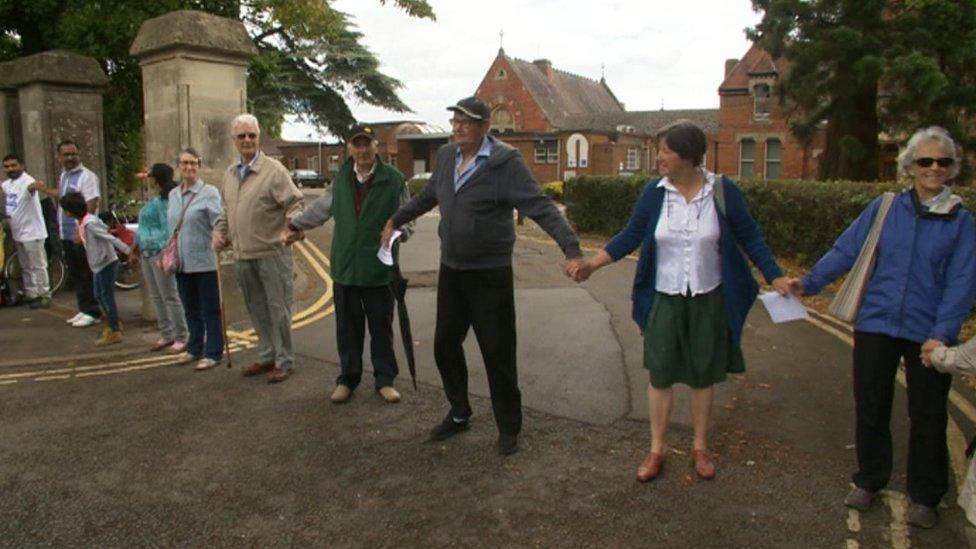Campaigners tell harrowing childbirth stories
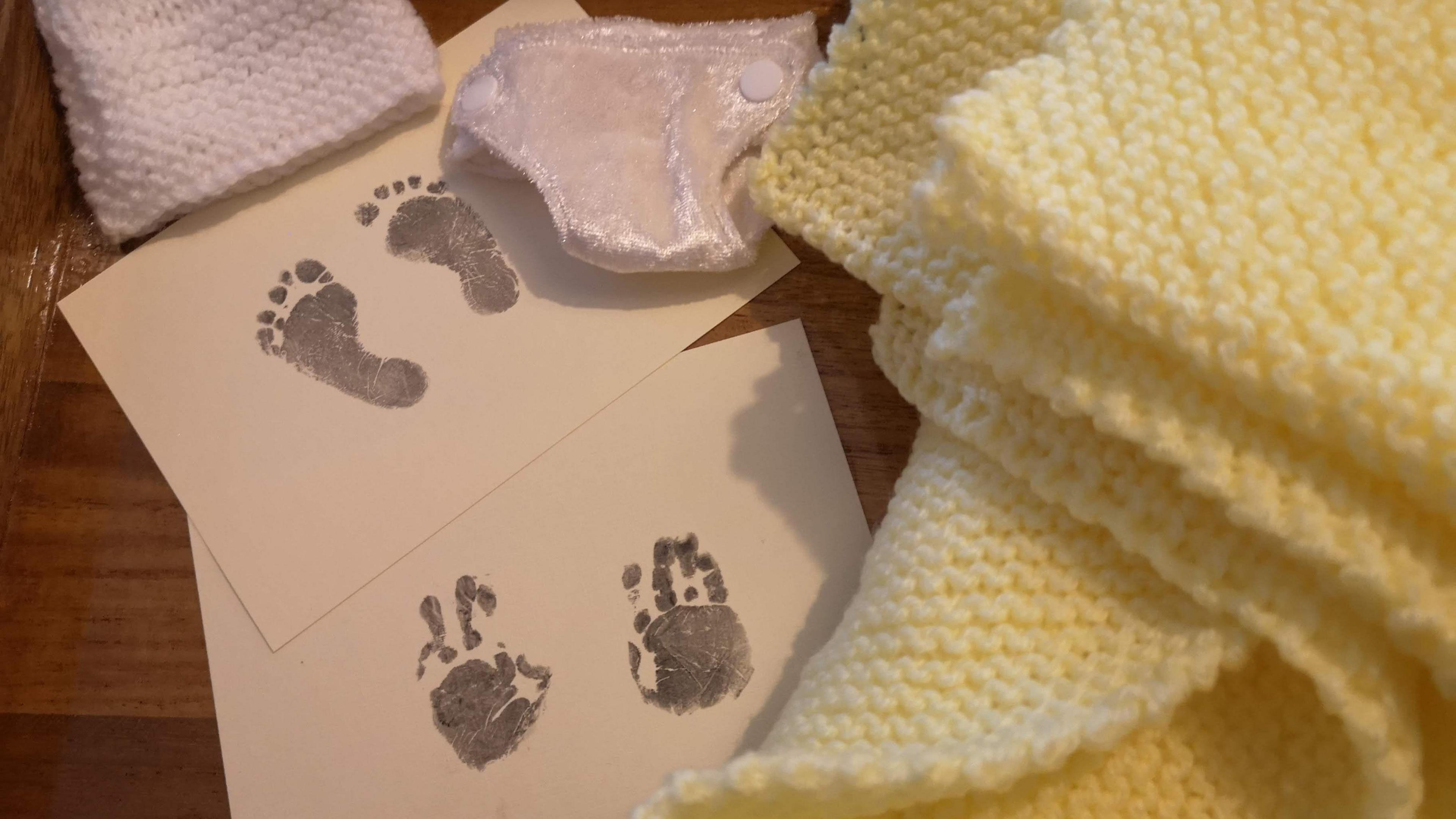
Some of the women say they have suffered PTSD after a stillbirth or miscarriage
- Published
More than 50 women have spoken of their traumatic childbirth experiences in a campaign to highlight what they say are poor maternity services in Oxfordshire.
The Keep the Horton General (KTHG) campaign group wants full maternity services to be reinstated at Horton General Hospital, in Banbury, after it was changed to a midwife-led unit in 2016.
In March, the unit was downgraded to "requires improvement" by the Care Quality Commission (CQC) after the health watchdog concluded babies were at risk of harm due to “poor governance and ineffective systems”. The hospital said it was improving.
After being interviewed by the BBC earlier this year, mother-of-one Beth Hopper says she was contacted by other women, who told her their own harrowing birth experiences at two hospitals run by Oxford University Hospitals NHS Foundation Trust.
Here are three of their accounts of what they say happened to them.
Beth's story
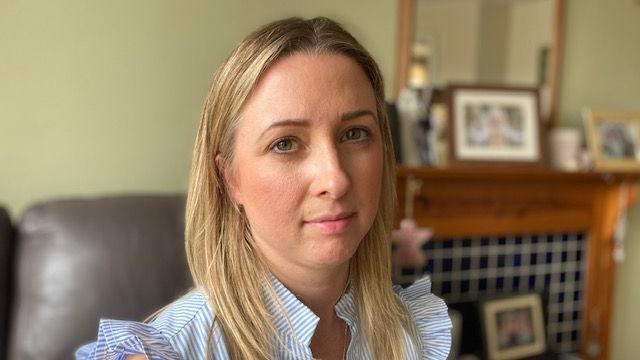
Beth Hopper suffered a stillbirth when she was 25 weeks pregnant
In 2018, Beth Hopper, 35, from Banbury, had a difficult pregnancy that required numerous appointments at the John Radcliffe Hospital (JR), about 30 miles away in Oxford.
She says she saw a different doctor each time and that her notes were not always read or communicated between departments.
At 25 weeks pregnant, she told the BBC that she attended a routine appointment where she says was vigorously examined by a locum doctor, despite telling him she had been experiencing bleeding and pain.
Afterwards, she said she felt very strange and uncomfortable.
'Opposite a pregnant mother'
The following night, she described how her waters broke and she lost a large blood clot.
Beth says she went to the JR maternity assessment unit, where she was scanned and her baby's heartbeat was detected.
She says no checks were carried out overnight and, by the next morning, she couldn't feel her baby move. Neither a midwife support assistant nor a midwife could apparently find a heartbeat.
"They had to go and find a doctor and he couldn't find one either," she says.
"Then he went to find a mobile full-scanning unit to confirm our baby had died.
"This was done on the observation ward, opposite a pregnant mother and a mother with her new baby next to me.
"I was on my own because my husband had been sent home, so it was a very public place to receive that news."
She says staff managed to find her a private room by the afternoon but Beth describes the whole experience as traumatising and says it left her with Post Traumatic Stress Disorder (PTSD).
Beth says some of the other women's experiences have been equally harrowing.
"Mothers are saying they're having medical procedures almost against their will, having to sign things when they're in the throes of labour," she says.
Shauna's story
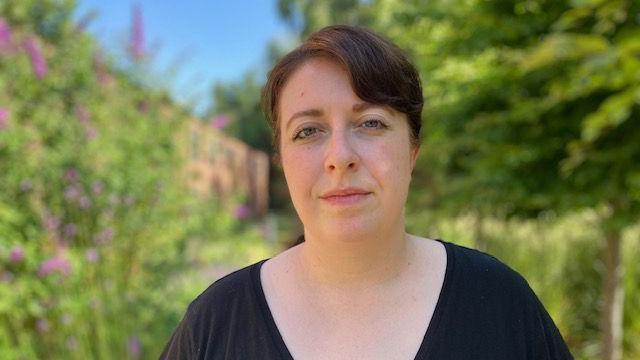
Shauna Vincent says she woke up in hospital with her dead baby in a cot next to her
Shauna Vincent, 30, from Banbury, told the BBC she was 21 weeks pregnant with her third child in March, when she started spotting.
She says that at the JR, staff were unable to find a heartbeat during an ultrasound scan. She says she was given a pill to help remove the remains of her baby and told to return to the hospital in two days' time.
"When I left, I was quite distraught, I cried the whole way home," says Shauna.
On the journey home with her partner, her waters broke. She made it to her bathroom before she started bleeding heavily. By the time an ambulance arrived 15 minutes later, she had already passed her baby but says paramedics were not allowed to cut the umbilical cord.
Back at the JR, Shauna says she was given a general anaesthetic to allow doctors to remove the placenta and she was then moved to the delivery suite.
"When I came round, obviously I didn't know what was going on," she says.
"I woke up and the baby was next to me in a cold cot. I didn't know what to expect because I'd never been in that situation before, to wake up with a dead baby next to me."
'They didn't care'
She says staff carried out observation checks on her every two hours, "with crying babies all around me".
"I couldn't sleep, it was awful, but they [hospital staff] refused to take me to the bereavement ward because I needed to have extra observations which they said they couldn't do there."
The next morning, Shauna was eventually moved to the bereavement ward but she says it was infested with flies.
She was later offered an iron transfusion because of the blood she had lost but it would have meant returning to the delivery ward, so she refused.
She says it has been more than 16 weeks and she has still not received her baby's autopsy report, despite chasing the hospital for it.
"I felt because my baby had died, they didn't care."
Andrea's story
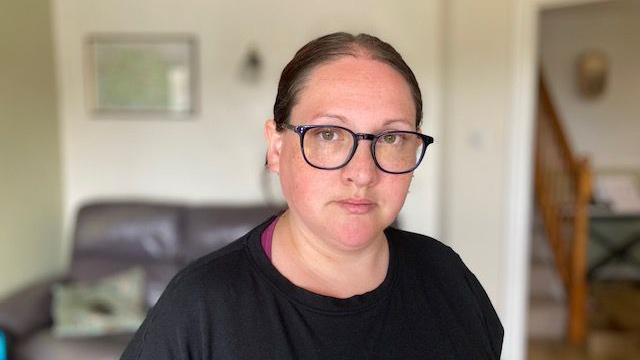
Andrea Ellis had trauma therapy after receiving a blood transfusion and surgery following a miscarriage
Single mum-of-four Andrea Ellis, from Banbury, suffered a miscarriage in July 2020, during the Covid pandemic.
A scan at the Horton confirmed the 37-year-old had lost her baby. A week later, she started to bleed heavily at home. She says she called an ambulance and sat in the bath, sobbing.
At the hospital, she passed out in the bathroom and was rushed to theatre for a blood transfusion.
"The next thing I know, I'm waking up in resuscitation with all these people around me, not knowing what was going on.
"Nobody talking to you, telling you that you've had a seizure, you're having a blood transfusion, nobody telling you any of that information.
"I understand it's a high-pressure environment but there has to be some level of sensitivity in that situation."
Andrea was transferred to A&E at the JR and says she received good care in that department but felt neglected on the gynaecology ward, where she waited for several hours to be examined by a doctor.
"I felt that I didn't matter and that my baby didn't matter."
Supported by the campaign group KTHG, external, the women say they are now seeking legal advice.
'Sincerely apologise'
Yvonne Christley, chief nursing officer at Oxford University Hospitals NHS Foundation Trust, says: “The safety and wellbeing of mothers and babies in our care is our top priority and we sincerely apologise to any women who may not have received the expected level of care.
“We encourage anyone concerned about the care they have received to get in touch, by talking to the team looking after them or by contacting our complaints team.
"Our birth reflections service also supports women who have had a difficult birthing experience and we encourage any woman who requires assistance to reach out for support.”
Follow BBC South on Facebook, external, X (Twitter), external, or Instagram, external. Send your story ideas to south.newsonline@bbc.co.uk, external or via WhatsApp on 0808 100 2240, external.
Related topics
- Published8 March 2024
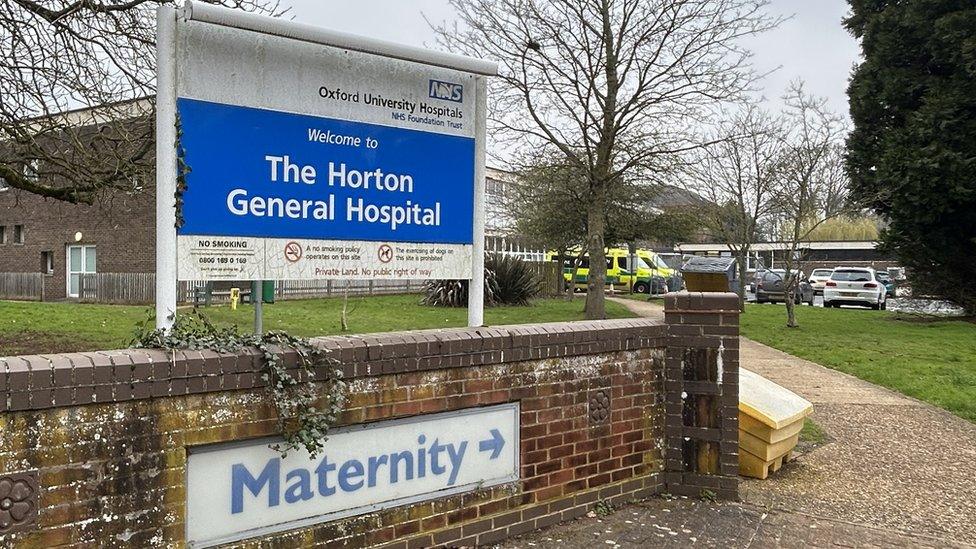
- Published26 November 2020
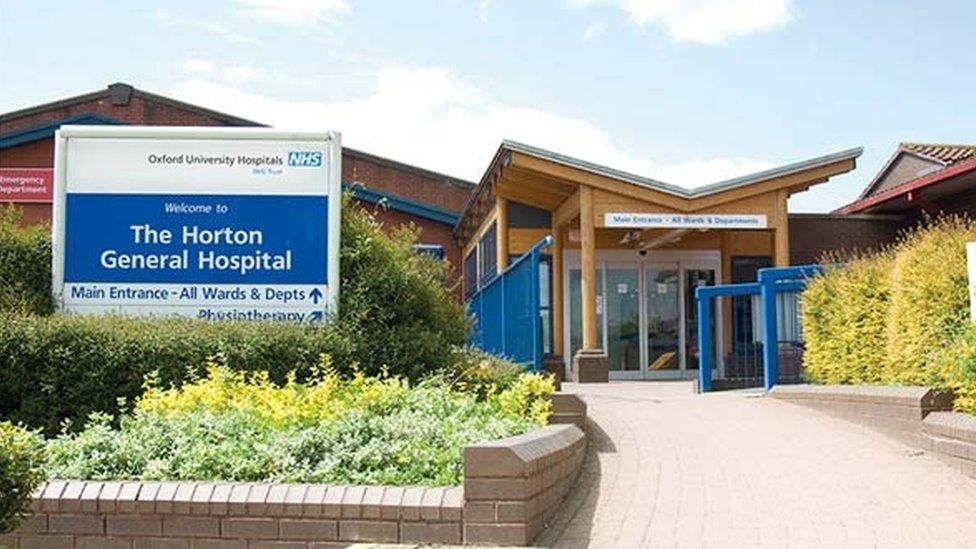
- Published21 August 2016
